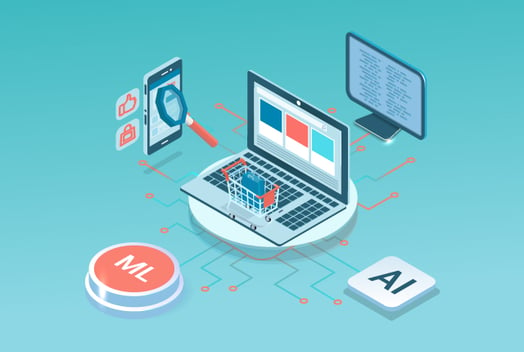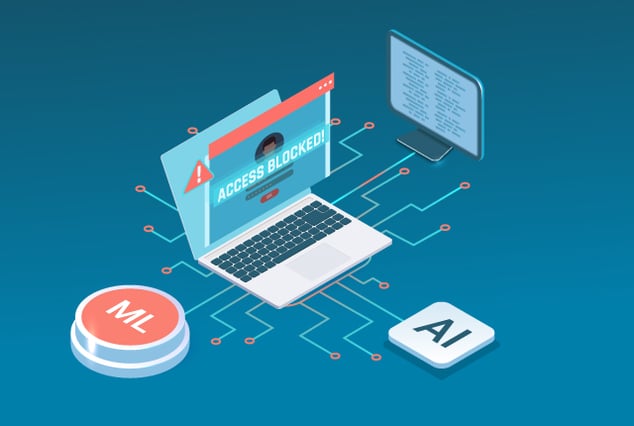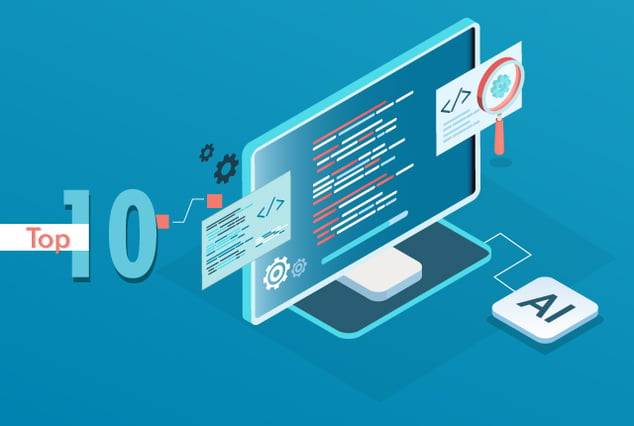
AI and ML are transforming the way that retailers do business, and their use in retail app testing can help organizations improve their accuracy, efficiency, and customer experience. In this blog post, we will explore the benefits of AI and ML in retail testing, the different types of AI and ML used in this context, the challenges of implementing these technologies, and best practices for successful implementation. We will also discuss the role of QASource, a software testing and quality assurance provider, in using advanced technologies to ensure that retail apps are functioning optimally.
The Benefits of AI and ML in Retail Testing
- Improved Accuracy: One of the main benefits of using AI and ML in retail testing is the improved accuracy it provides. AI algorithms can analyze large volumes of data quickly and accurately, making it easier to identify errors and anomalies in the data. This can help retailers ensure that their apps are functioning correctly and that they are providing accurate information to customers. For example, if a retail app provides recommendations for products based on customer preferences, using AI and ML can help ensure that the recommendations are accurate and relevant. This can lead to increased customer satisfaction and loyalty.
- Increased Efficiency: Another benefit of using AI and ML in retail testing is the increased efficiency it provides. AI algorithms can automate many of the tasks involved in testing, such as identifying bugs and anomalies in the data. This can help retailers save time and resources, allowing them to focus on other important areas of their business. For example, if a retail app has a large number of products, using AI and ML can help automate the process of testing each product for accuracy and functionality. This can free up resources that can be used to improve other aspects of the app, such as user experience or design.
- Better Customer Experience: Finally, using AI and ML in retail testing can improve the overall customer experience. By ensuring that the app is functioning correctly and providing accurate information, retailers can provide a better experience for their customers. This can lead to increased customer satisfaction and loyalty. For example, if a retail app uses chatbots to provide customer support, using AI and ML can help ensure that the chatbots are providing accurate and helpful information to customers. This can lead to faster resolution of customer issues and increased customer satisfaction.
Types of AI and ML Used in Retail Testing
- Natural Language Processing (NLP): One of the most common types of AI used in retail testing is natural language processing (NLP). NLP involves analyzing and interpreting human languages, such as text or speech. Retailers can use NLP to analyze customer reviews, feedback, and other data to gain insights into customer preferences and behavior. For example, a retailer could use NLP to analyze customer reviews of a product and identify common themes or issues that customers are experiencing. This information can then be used to improve the product or address the issues that customers are experiencing.
- Image Recognition: Another common type of AI used in retail testing is image recognition. Image recognition involves analyzing and interpreting images, such as product images or customer photos. Retailers can use image recognition to identify product defects, track inventory, and analyze customer behavior. For example, a retailer could use image recognition to identify defects in a product image and ensure that the image accurately represents the product. This can help prevent customer dissatisfaction due to inaccurate product representations.
- Predictive Analytics: Finally, retailers can use predictive analytics to forecast future trends and behaviors. Predictive analytics involves analyzing historical data to identify patterns and trends, which can be used to make predictions about future behavior. Retailers can use predictive analytics to identify potential issues before they occur, allowing them to take proactive measures to prevent them. For example, predictive analytics can be used to identify trends in sales data, such as seasonal fluctuations or changes in customer preferences. Retailers can then use this information to adjust their inventory levels, marketing strategies, and other business operations to better meet customer demand.
However, implementing predictive analytics can be challenging for retailers. It requires the use of complex algorithms and models, as well as large volumes of data. Retailers must also ensure that their data is accurate, relevant, and up-to-date. In addition, retailers must have the necessary expertise to develop and maintain predictive analytics models, which can be costly and time-consuming.
Despite these challenges, predictive analytics can provide significant benefits to retailers. By using predictive analytics, retailers can make better-informed business decisions, reduce costs, and improve customer satisfaction. For example, retailers can use predictive analytics to optimize their inventory levels, reducing the risk of stockouts and overstocking. They can also use predictive analytics to personalize their marketing messages and promotions, improving the relevance and effectiveness of their marketing efforts.
Challenges of Implementing AI and ML in Retail Testing
- Lack of Expertise: One of the main challenges of implementing AI and ML in retail testing is the lack of expertise. Many retailers do not have the in-house expertise needed to implement and maintain AI and ML systems. This can lead to difficulties in integrating AI and ML into existing systems, as well as difficulty in identifying and correcting errors.
- Data Quality Issues: Another challenge of implementing AI and ML in retail testing is data quality issues. AI and ML systems rely on large volumes of high-quality data to function properly. If the data is inaccurate or incomplete, it can lead to inaccurate results and errors.
- Cost: Finally, implementing AI and ML in retail testing can be expensive. AI and ML systems require specialized hardware and software, as well as specialized expertise. This can lead to significant upfront costs, as well as ongoing maintenance and support costs.
Best Practices for Implementing AI and ML in Retail Testing:
- Identify areas where AI and ML can provide the greatest benefit
- Build a team with the necessary expertise to implement and maintain AI and ML systems
- Ensure that data quality is a top priority
- Conduct regular testing and evaluation to ensure that AI and ML systems are functioning as intended
Role of QASource
QASource is a leading software testing and quality assurance provider that uses cutting-edge technologies to ensure that retail apps are thoroughly tested and performing at their best. Our expertise in these advanced technologies enables us to identify and resolve potential issues in retail apps quickly and accurately, ensuring that customers have a seamless and enjoyable experience when using these apps. At QASource, we are committed to using high-end technologies to provide our clients with top-notch retail app testing services that help them stay ahead in a highly competitive market.
Conclusion
In conclusion, AI and machine learning are transforming the retail industry, and their use in retail app testing can provide significant benefits to retailers. By using advanced technologies such as natural language processing, image recognition, and predictive analytics, retailers can improve the accuracy, efficiency, and customer experience of their apps. However, implementing AI and ML in retail testing can be challenging, and retailers must be prepared to address issues such as lack of expertise, data quality issues, and cost. By following best practices such as identifying areas where AI and ML can provide the greatest benefit, building a team with the necessary expertise, and ensuring that data quality is a top priority, retailers can successfully implement AI and ML in their retail testing processes.



